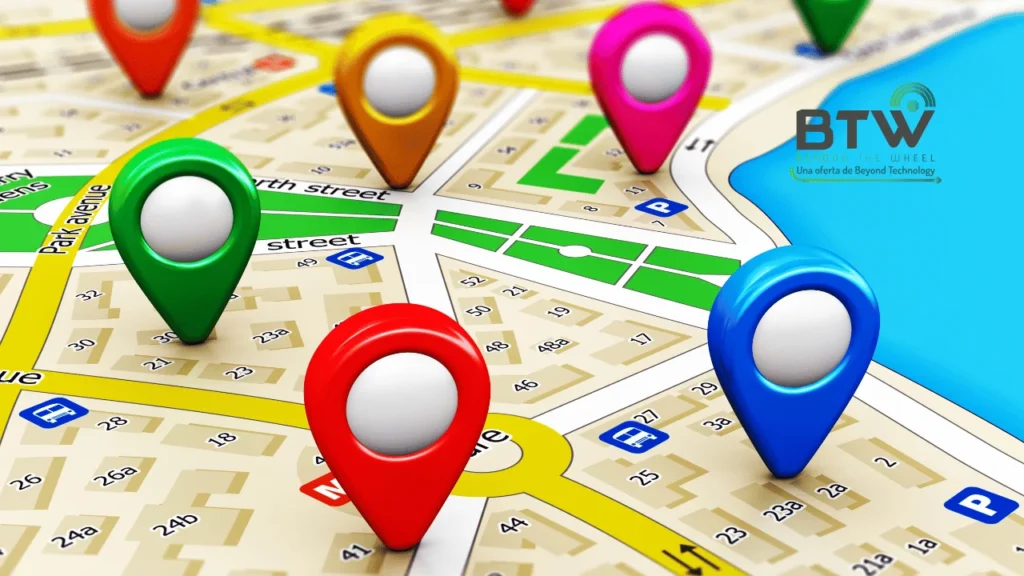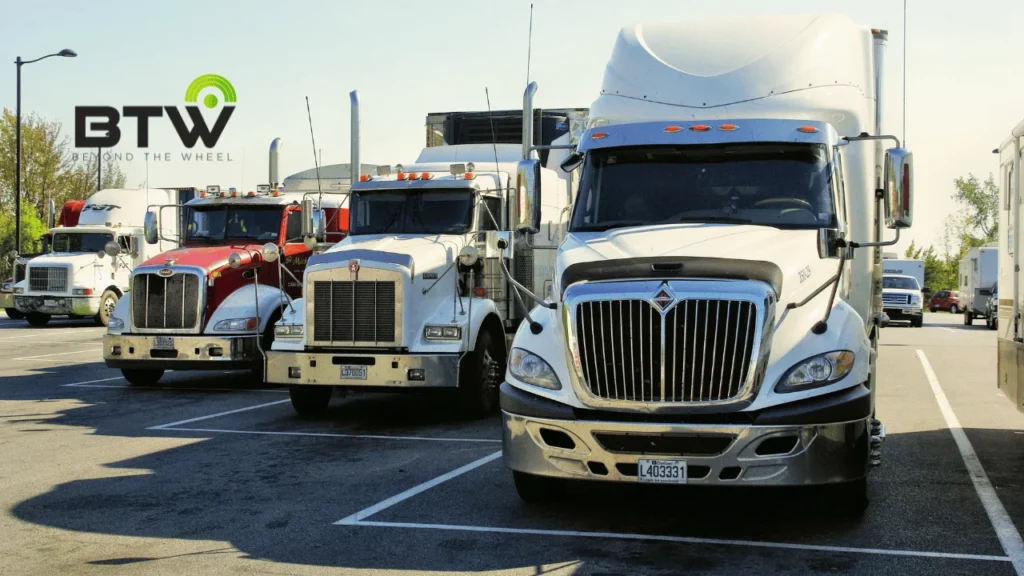Signs of driver fatigue: how to detect and prevent accidents

Driver fatigue is one of the most common risk factors in freight and passenger transport. Long driving hours, inadequate rest, and road conditions can lead to symptoms that compromise safety on the road. Detecting these signs in time not only protects the driver’s life but also prevents incidents that impact fleet operations and generate unnecessary costs. Changes in driver behavior and loss of concentration One of the first signs of fatigue is slower reaction times. A tired driver takes longer to respond to unexpected situations, increasing the likelihood of collisions. Erratic maneuvers, such as unintended lane departures or delayed braking, may also occur. Additionally, difficulty maintaining a consistent speed often indicates a lack of control over the vehicle. Another key indicator is a loss of concentration. Fatigued drivers tend to blink more frequently or stare blankly at the road without a clear focus. These signs can go unnoticed without a proper monitoring system capable of detecting abnormal behavioral patterns. Monitoring technology to detect drowsiness in real time The use of smart cameras powered by artificial intelligence has proven to be an effective solution for identifying signs of driver fatigue. These systems analyze facial expressions, blink frequency, and gaze direction to detect drowsiness indicators before they become a safety hazard. By integrating this technology into fleet operations, companies can receive real-time alerts when a driver shows signs of fatigue. This allows for immediate decision-making, such as scheduling strategic breaks or activating assistance protocols. Additionally, long-term data analysis helps identify fatigue patterns, optimizing route planning and shift management. Risk reduction and enhanced safety for commercial fleets Preventing fatigue-related accidents not only protects driver well-being but also reduces operational costs associated with accidents and downtime. Implementing automated detection systems improves road safety and contributes to a more efficient and regulated work environment. At Beyond The Wheel, we offer advanced driver monitoring solutions for commercial fleets. Speak with one of our experts and discover how to enhance your fleet’s safety with cutting-edge technology.
Key technologies to enhance fleet operational safety

Fleet safety is a crucial aspect to ensure the continuity of logistics activities and the protection of resources. With increasing risks in transportation, advanced technologies have become a decisive factor in reducing incidents and optimizing vehicle management. In this context, tools such as advanced GPS tracking, security cameras, and interference detectors are redefining safety standards in the industry. Advanced GPS tracking for real-time precision monitoring Advanced GPS tracking not only enables real-time vehicle location but also provides detailed analysis of driver behavior and routes taken. This technology helps identify unsafe driving patterns, such as speeding or sudden braking, allowing for preventive measures. Additionally, constant monitoring facilitates efficient coordination between units and operation centers, reducing response times during unforeseen events. Security camera systems for comprehensive visual control Implementing security cameras in transport units provides a complete view of activities inside and outside vehicles. These tools capture visual evidence that proves invaluable in cases of accidents or theft attempts, strengthening the protection of drivers and cargo. Moreover, the most advanced systems include automatic analysis features, such as fatigue detection or driver distractions, contributing to risk mitigation and improved road safety. Interference detectors: A shield against electronic sabotage Interference detectors, also known as also known as a jammer detection device (or antijammer although this term is imprecise), are essential to ensure communication and monitoring continuity. These tools detect and neutralize attempts to block GPS or communication signals, protecting fleets from technological attacks. Their integration into security systems not only prevents potential sabotage but also boosts operational confidence by guaranteeing the constant availability of critical data. Discover advanced solutions to optimize the safety of your fleet The use of advanced technologies represents a decisive step toward improving operational safety in transportation. Beyond The Wheel offers comprehensive solutions tailored to the specific needs of each client. Speak with one of our advisors to learn how these tools can transform your fleet management.
The Impact of Poorly Maintained Tires on Transportation Operating Costs

Tire maintenance is a critical aspect often overlooked in fleet management. However, proper care not only ensures road safety but also directly affects the operating costs of a transportation company. Neglecting this essential task can lead to unnecessary expenses, ranging from increased fuel consumption to unexpected repairs. How deflating tires affect fuel efficiency Tire pressure significantly influences fuel efficiency. When tires are underinflated, the contact surface with the pavement increases, generating greater rolling resistance. This added resistance forces the engine to work harder, leading to higher fuel consumption. Specialized studies reveal that a 20% decrease in recommended tire pressure can increase fuel consumption by up to 5%. Maintaining the proper pressure not only conserves energy resources but also reduces the carbon footprint of operations. Mechanical risks stemming from uneven tire wear Uneven tire wear is another common issue caused by poor maintenance. This phenomenon may result from misalignments, lack of tire rotation, or improper pressure. Tires with uneven wear create imbalanced stress on key vehicle components, such as suspension and steering systems. Over time, this raises the likelihood of mechanical failures, which can lead to unplanned downtime and costly repairs, directly affecting operational profitability. The link between tire monitoring and road safety Neglecting tire maintenance impacts budgets and compromises the safety of drivers and cargo. Tires with insufficient pressure, excessive wear, or visible damage significantly increase the risk of accidents. Additionally, on-road incidents cause operational delays and erode customer trust. Implementing advanced monitoring technologies helps identify potential issues before they escalate, enhancing both transportation safety and efficiency. If you’re looking to optimize your fleet’s operating costs and ensure safer, more efficient transportation, Beyond The Wheel offers advanced monitoring and telematics solutions tailored to your needs. Speak with one of our advisors to learn more.
The importance of telemetry in modern logistics: Beyond GPS

In the competitive world of modern logistics, technological tools have become essential pillars for optimizing operations and reducing costs. While GPS has long been the primary solution for tracking vehicles, telemetry emerges as a resource that transforms data into valuable insights. Its ability to monitor vehicle performance and condition positions it as a strategic tool in fleet management. Vehicle performance monitoring for more efficient operations Telemetry not only provides the location of a unit but delves deeper into details that optimize performance. From fuel consumption to engine usage, this technology allows companies to identify patterns that directly impact operating costs. With real-time access to these indicators, businesses can anticipate problems, implement energy-saving strategies, and extend vehicle lifespan, creating a positive impact on profitability. Proactive safety with advanced telemetry Another area where telemetry surpasses GPS is in its ability to improve fleet safety. Data on speed, harsh braking, or sharp turns provide a clear picture of driver behavior and the mechanical condition of trucks. These metrics help implement preventive measures that protect assets and the human teams operating them. Reducing road risks also means minimizing disruptions in logistics operations. Optimizing preventive maintenance in vehicle fleets Continuous monitoring of components like tires, braking systems, or the temperature in refrigerated trailers allows companies to perform maintenance before major breakdowns occur. This predictive capability minimizes downtime and ensures deliveries are made as planned, a critical factor in a market where punctuality is key to customer loyalty. With these advantages, telemetry establishes itself as a resource that goes far beyond traditional tracking, integrating seamlessly into the operational strategies of leading logistics companies. To discover how these solutions can transform your fleet management, speak with a Beyond The Wheel advisor and take your operations to the next level.
Satellite tracking for businesses: Everything you need to know to optimize your fleet
The control and monitoring of business fleets have become a strategic component to improve operational efficiency and reduce costs. Satellite tracking, as one of the most advanced technologies, provides crucial tools to maximize visibility and security for moving assets. Understanding the capabilities of this solution can make a significant difference in managing a transportation-dependent company. Tracking technologies that transform fleet management The market offers various technological solutions to monitor vehicles, ranging from basic GPS systems to advanced telemetry platforms. The most comprehensive systems integrate satellite tracking with real-time data analysis, providing insights such as driving patterns, fuel consumption, and downtime. These capabilities allow companies to anticipate problems and make informed decisions to optimize routes and reduce operational expenses. In addition, modern tracking solutions not only locate a vehicle but also collect relevant information about engine performance, tire pressure, and cargo conditions. These functionalities help maintain service quality standards and ensure the safety of both drivers and transported goods. Key benefits of an advanced business telemetry solution Implementing a robust satellite tracking system can significantly impact a company’s operations. Notable benefits include improved delivery punctuality, reduced unnecessary mileage, and compliance with transportation regulations. Access to detailed real-time reports enables companies to identify areas for improvement and plan strategies to maximize the potential of every fleet unit. For instance, by monitoring driver behavior, businesses can design training programs that reduce vehicle wear and enhance fuel efficiency. How to choose a reliable satellite tracking provider Choosing the right provider is essential to achieve tangible results with these technologies. Factors such as system coverage, integration capabilities with existing platforms, and technical support should be evaluated before deciding. A reliable provider not only delivers cutting-edge technology but also offers personalized advice to tailor the solution to each client’s specific needs. Opting for a system that combines high-quality hardware with intuitive and scalable software ensures a smooth implementation and sustainable long-term results. Furthermore, efficient technical support guarantees quick problem resolution and prevents operational interruptions. Contact Beyond The Wheel to transform your fleet management If you’re looking to optimize your fleet and take control of your operations to the next level, Beyond The Wheel offers the most advanced solutions in satellite tracking and business telemetry. Speak with one of our advisors to discover how these tools can enhance your business’s efficiency and profitability.
How to prevent fuel theft in fleets with advanced technology

Fuel theft poses a significant challenge for transportation companies, especially those managing large fleets. This issue not only impacts operational costs but also compromises logistical efficiency and can lead to substantial financial losses. However, thanks to advanced technology, there are solutions specifically designed to mitigate this risk, optimize consumption, and ensure effective resource monitoring. Accurate detection of variations in fuel tanks One of the most effective methods to combat fuel theft is the continuous monitoring of tank levels. With devices like the fuel level sensor (FLS), it’s possible to identify any anomalous variations in real time. This technology uses high-precision sensors that generate instant alerts for irregular drops, whether due to unauthorized extraction or system failures. With detailed information at hand, operators can respond promptly and make informed decisions to prevent further losses. Real-time control to manage fleet performance In addition to preventing theft, these technologies allow fleet managers to assess consumption patterns and detect potential system leaks. Devices integrated with telemetry software provide detailed reports on the performance of each unit, facilitating the detection of consumption anomalies that may arise from poor maintenance or structural issues. This level of control not only reduces risks but also enhances overall operational efficiency. Tracking technology as a deterrent and control tool Integrating satellite tracking systems with fuel monitoring adds an extra layer of security. These solutions not only allow you to know the exact location of vehicles but also generate detailed records of fuel usage for every trip. This combination of data acts as a deterrent for potential incidents and provides full transparency in operations, fostering trust between owners and their drivers. Explore advanced solutions to protect your resources Implementing advanced technologies such as Fuel Level sensors and telemetry systems can make a difference in fleet management. At Beyond The Wheel, we offer the tools and expertise to help you safeguard your resources and optimize your operations. Talk to one of our advisors today and discover how to take your fleet to the next level.
How advanced technologies are transforming road safety in fleet management

Vehicle Fleet management has significantly evolved with the incorporation of advanced technologies designed to enhance road safety. In a sector where road risks are constant, tools such as fatigue detection cameras, video telematics systems, and real-time alerts are making a substantial difference by reducing accidents and optimizing vehicle operations. Smart cameras to prevent driver fatigue Driver fatigue is one of the leading causes of accidents in transportation. Fatigue monitoring cameras, equipped with artificial intelligence, detect signs of drowsiness, such as excessive blinking, unusual head movements, or prolonged distractions. These technologies not only send real-time alerts to drivers but also generate reports for fleet managers, enabling them to take preventive measures to mitigate future risks. This proactive approach is crucial to maintaining high safety standards on long or high-demand routes. Video telematics for comprehensive fleet monitoring Video telematics systems combine high-definition cameras with real-time data analysis to provide a comprehensive view of operations. These tools record incidents, assess driver behavior, and generate insights that help design targeted training programs. Additionally, their ability to synchronize with other telemetry systems offers a broader perspective, combining data such as speed, braking, and location to enable more informed decision-making. Real-time alerts to mitigate road risks Real-time alert technology is another key innovation in the sector. These solutions use advanced sensors and connectivity to immediately notify users about events such as sudden lane changes, emergency braking, or hazardous road conditions. When integrated with fleet management platforms, these tools not only protect drivers but also optimize logistics by preventing delays caused by accidents or unexpected breakdowns. In a world where safety and efficiency are priorities for fleet operations, adopting these technologies has become essential. If you’re looking to implement advanced solutions such as fatigue cameras, video telematics, and real-time alerts, we invite you to learn more about Beyond The Wheel. Speak with one of our advisors to discover how these tools can transform the safety and productivity of your fleet.
Main security risks faced by fleet transportation today

The transportation sector faces growing security challenges, jeopardizing not only cargo but also the operational continuity of companies. Among the most severe threats are theft and GPS tracking interference, issues that demand increasingly sophisticated technological solutions. How cargo theft impacts transportation operations Transport theft directly affects operational costs and the reputation of companies. High-traffic routes are especially vulnerable, often becoming frequent targets for organized crime. Adding to this is the ability of criminals to bypass basic protective measures, highlighting the need for advanced technologies to ensure operational integrity. GPS interference and its impact on fleet monitoring Blocking GPS signals using devices known as jammers has become a widely used technique to disable satellite tracking systems. This not only hinders vehicle location but also allows attackers to operate with greater impunity. In response to this threat, solutions such as jammer detectors stand out as key tools to ensure real-time monitoring continuity and prevent significant losses. Advanced technologies for vehicle fleet protection The implementation of specialized devices for detecting interference and signal blocking strengthens security systems. These solutions not only alert companies to the presence of jammers but also provide real-time data, enabling immediate decisions in the face of potential incidents. Integrating these tools with telematics platforms enhances their functionality and ensures greater operational control. If you’re ready to explore innovative solutions to protect your transportation operations, Beyond The Wheel offers advanced technologies to ensure fleet security. Speak with one of our advisors and turn risks into opportunities for operational improvement.
How advanced technologies are transforming fleet maintenance

The evolution of technology has driven profound transformations in the way companies manage their fleets. Innovative tools such as tire monitoring systems, pressure sensors, and specialized software have enabled process optimization, cost reduction, and safer, more efficient operations. These solutions, combined with real-time data analysis, offer new perspectives for fleet managers striving to remain competitive. Performance optimization with advanced tire pressure sensors Tire wear and pressure changes are critical factors affecting vehicle performance and safety. Advanced pressure sensors enable continuous monitoring, providing real-time alerts about deviations that could jeopardize operations. By preventing incidents like blowouts or uneven wear, these tools not only extend tire lifespan but also reduce fuel consumption, resulting in significant savings for businesses. Management software for efficient predictive maintenance The implementation of specialized fleet maintenance software provides a comprehensive view of each vehicle. These platforms not only record historical data but also generate predictions based on advanced algorithms. This allows maintenance to be scheduled before failures occur, reducing downtime and enhancing productivity. Furthermore, by integrating data with other technologies, such as temperature sensors or GPS monitoring, businesses achieve more precise control of their entire operation. The impact of telemetry on fleet management Telemetry has changed the way fleet managers monitor their operations. This system collects critical information about vehicle conditions, from speed to engine temperature, facilitating data-driven decisions. Temperature monitoring sensors are essential for fleets transporting perishable goods, ensuring optimal conditions during transit. This preventive approach not only protects assets but also improves customer satisfaction by ensuring safe and timely deliveries. At Beyond The Wheel, we understand the importance of integrating these technologies into your fleet’s daily operations. If you want to explore how these solutions can transform your processes, schedule a consultation with one of our advisors. Our team is ready to help you optimize every aspect of your operations.
The main challenges in fleet management and how telematics can solve them

Fleet management is a complex task that involves balancing costs, maximizing efficiency, and ensuring the safety of assets and drivers. However, the inherent challenges of this operation can lead to significant economic and operational losses if not addressed effectively. Telematics has emerged as a comprehensive solution, turning these challenges into opportunities for improvement through its ability to collect and analyze real-time data. How to optimize vehicle performance with smart monitoring One of the most recurring problems in fleets is premature vehicle wear, caused by inefficient use, irregular maintenance, or lack of oversight. This can result in costly repairs and unexpected downtime. With telematics systems, managers can access detailed information about each unit’s condition, such as engine temperature, brake wear levels, and fuel consumption. This visibility enables preventative maintenance scheduling, extending vehicle lifespan and reducing long-term operational costs. Solutions for more efficient routes and lower logistic costs Inefficient route planning is another key challenge that affects both delivery times and fuel consumption costs. In this context, telematics enables the creation of optimal routes based on up-to-date data, such as traffic conditions, weather, and real-time vehicle location. Additionally, historical route analysis helps identify inefficiency patterns and correct them, resulting in a more agile and competitive operation. How to enhance fleet security with advanced technology Driver and cargo safety is a priority for any transport company. Reckless driving practices or theft incidents can pose significant risks. With telematics tools, it’s possible to monitor driver behavior, detect sudden braking or rapid acceleration events, and receive alerts for route deviations. These features not only improve safety but also foster a culture of responsibility among operators. The implementation of telematics solutions provides a competitive edge for companies looking to optimize their fleet operations. If you want to learn how these technologies can transform your fleet management, contact Beyond The Wheel and speak with one of our expert advisors.